'To enjoy the wilderness is to be rebooted to factory settings,' says Mitali Saran.
'Your eyes have to readjust their focal length from arm's length to way, way across the bank, where the stone-still slab of a crocodile lies snaggle-toothed in the sun, or to where a crested serpent eagle perches in a complication of light and shade, considering its options.'
All photographs: Rajesh Karkera/Rediff.com
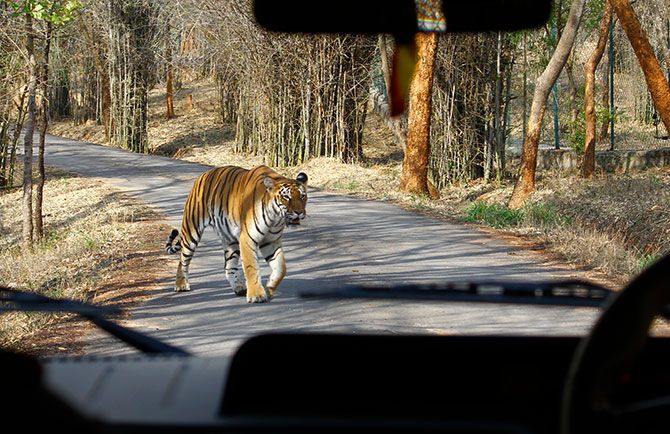
There's nothing as delicate as a spotted deer stepping through grass.
Perfect ears swelling from slender stems, tiny hooves, liquid eyes, it picks up its feet like a dancer.
Apex predators are fab, but there's nothing boring about deer.
I had plenty of opportunities to admire deer because T1, the tigress, was evident only from her pug marks.
She had walked the dirt track alone not long before our jeep made its way into a tangerine dawn breaking over the wilderness of the Panna National Park in Madhya Pradesh.
Now only a line of jeeps, squashed together like bugs, gave away her location deep in a thicket.
She was cuddling with her cubs, and she wasn't coming back out. I wouldn't have either.
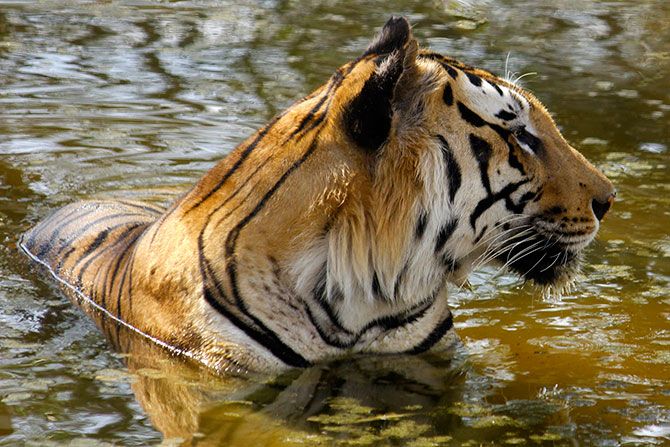
We drove up one of the escarpments and, at the lip of a gorge, with the sun blunting the chill, we drank hot tea from a flask and looked at the shining golden grasslands.
A bit later I was gaping at an abstract painting created by a tangle of slender trees, vines, and leaves mirrored in a quiet swampland.
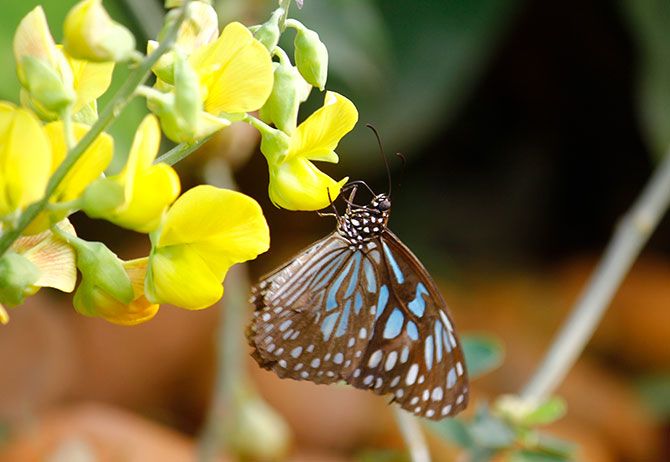
Panna is a varied landscape of grassland, hill, scrub, forest, and rock, nourished by the Ken river.
You can't believe the damage that that glassy ribbon can do. The last time I was in these parts was just after it had raged in flood, leaving fridges dangling in trees.
You can still see the high-water mark in uprooted trees, cloth trapped in branches, stone shredded to rubble.
It makes you want to conduct an appeasement ceremony immediately.
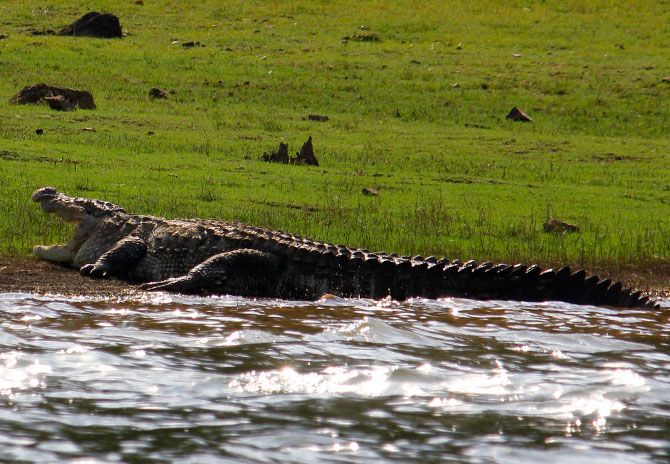
To enjoy the wilderness is to be rebooted to factory settings.
Your eyes have to readjust their focal length from arm's length to way, way across the bank, where the stone-still slab of a crocodile lies snaggle-toothed in the sun, or to where a crested serpent eagle perches in a complication of light and shade, considering its options.
I'm always astonished by the skill and ease with which naturalists spot creatures in the wild. I can look straight at an animal without seeing it.
But it's not about having unique eyes, it's all about learning-re-learning, really, to see. And it's not just about eyes.
The challenge is to get your head out of your digital arse. The wilderness will bore you to tears until you re-inhabit your own physicality, nurture attention, and recalibrate your expectations of choice.
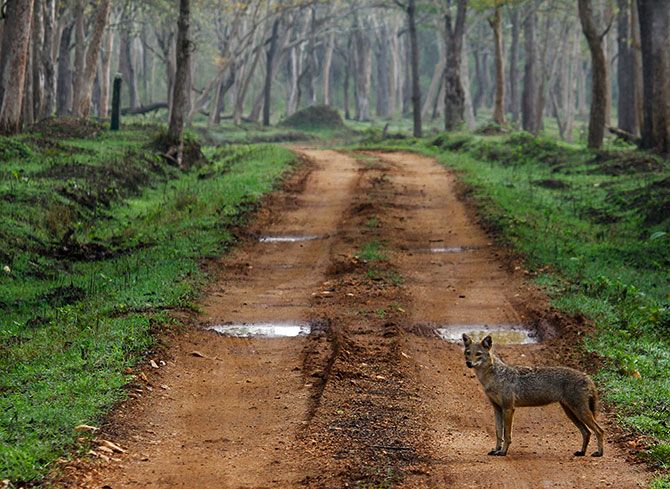
But if you can do that, if you can see the drama in light and colour and form and movement; feel temperature and wind and texture; smell the riotous bouquet of resin, droppings, flowers, grass, and sunlight, hear calls and birdsong and movement, and taste the odd leaf -- well then, the wild is the entertainment gift that never stops giving.
(You can, of course, have a bit of both if there's coverage, you rarely have to go cold turkey anymore. It's a process.)
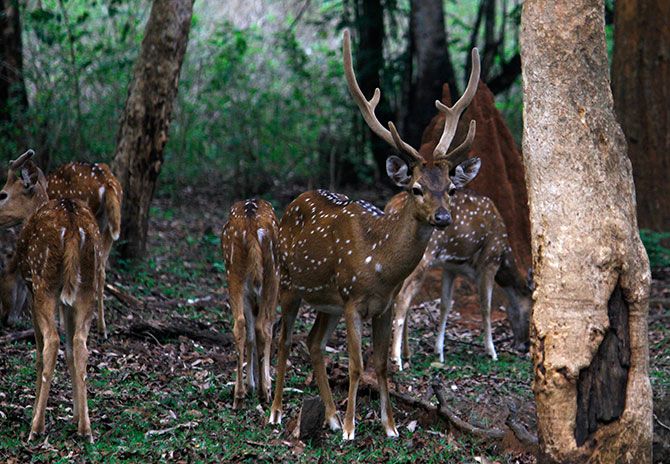
2016 has been, to quote Dame Helen Mirren, a 'big pile of shit.'
Murder, terrorism, war, noxious cultural tectonics, Brexit, Trump, Syria, demonetisation -- all of it littered with the corpses of beloved musicians who soundtracked large parts of our lives.
You can get hammered and set stuff on fire, or roll over and die, or you can remind yourself that the big pile of shit only seems to comprise the whole universe if you keep your nose to it.
The virtual world is interesting, and creative, and important, but there's a lot to be said for giving it an occasional sincere kick in the pants.
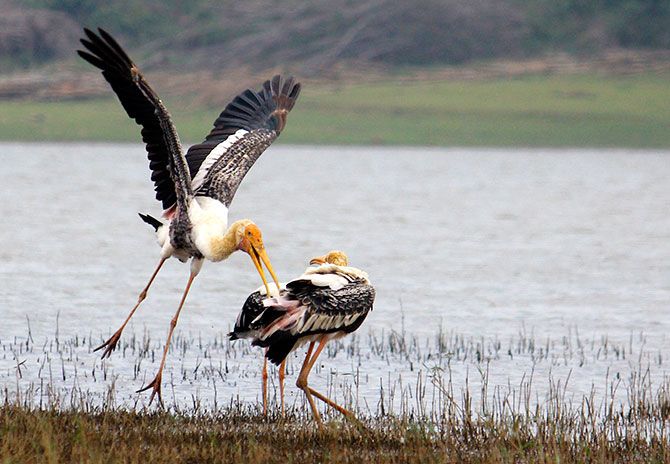
Climbing back into your senses in a wilderness is about the best cleanse there is for the toxicity normalised in modernity.
It reminds you that you have a stake in speaking up in defence of the environment -- a lonely battle if there ever was one, conducted by deeply committed and deeply vulnerable people who remind you of that iconic photograph of the student before the tank in Tiananmen Square.
When I was a kid, my tennis coach had one mantra: Come back to the centre of the court after every shot. Meditation aspires to the same thing. And being in the wilderness is a vivid enactment of it.
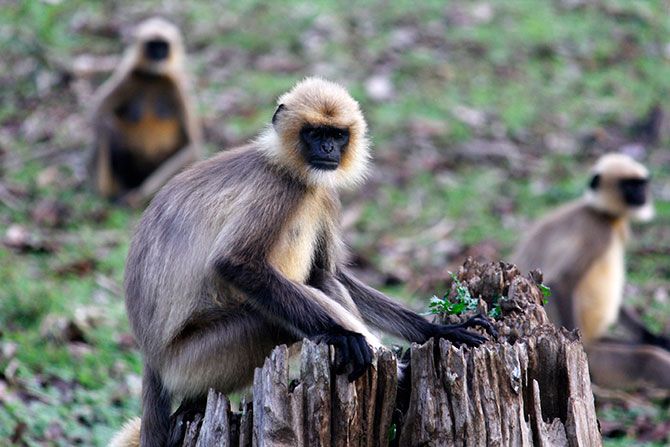
We are animals, with animal instincts, animal needs, and animal dependencies, designed to live very differently from the way many of us do.
Thank god for creature comforts, and thank god we have ways of protecting ourselves against the brutalities of nature.
But it's easy to forget that we come from it, and that its value is central, not peripheral, to our well-being.
So if you're casting about for resolutions in the new pile of shit coming up, I recommend this: Visit as many wildernesses as you can.
They are better than any spa, and you never know how long they'll last.
Happy new year.












 © 2025
© 2025